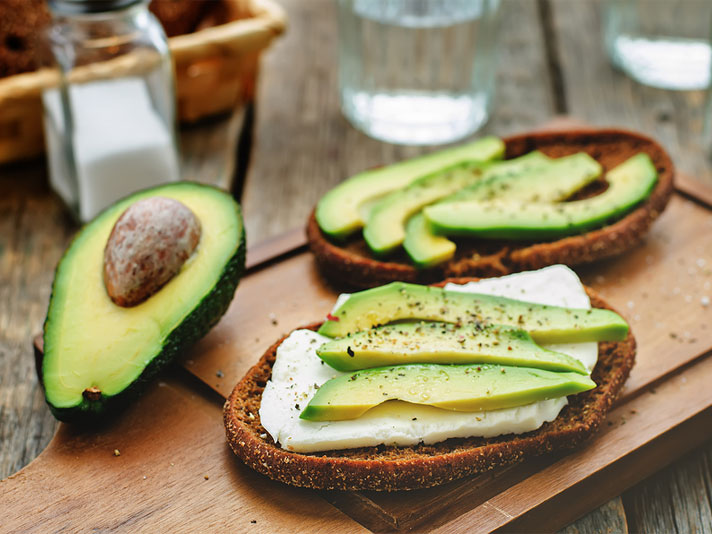Avocados—Like Buttah, Only Better!
- By Heidi Lewis
- Last Updated On
- Reading Time: 3 mins.
The avocado originated in south-central Mexico about 10,000 years ago. It was several millennia before wild avocado trees were cultivated and many more before the Hass avocado—the most common variety in the US today—was born in a California backyard during the early 1930s.

Are Avocados Good for You?
You might think that something as rich and creamy as an avocado would be bad for you, but there’s no need to worry. This highly prized fruit—technically, it’s a berry—is rich in vitamins B6 and C, as well as folate and fiber. (Psst, we don’t want to hurt the banana’s feelings, an avocado has more potassium per ounce.)
Avocados contain high levels of antioxidants, such as carotenoids, as well as significant quantities of vitamin E. An avocado’s oils are mostly monounsaturated—the kind that lowers LDL (“bad”) cholesterol but maintains HDL (“good”) cholesterol.
Get tips for your office
Be an office hero!Fun Ways to Eat Avocados: They’re Not Just for Guacamole
Avocados are a healthy substitute for foods rich in saturated fats, like butter and fatty meats. Some people enjoy them eaten right out of the skin with a spoon. Or try them smeared on bagels, toast, or rice cakes—scrumptious! Mash with a little lime juice, salt, and pepper to jazz up a sandwich. And don’t forget the avocado’s sweet side.
In Brazil, avocados are made into ice cream or breakfast smoothies. Singer/songwriter Jason Mraz, a celebrity avocado farmer in San Diego County, uses avocados in a surprisingly delicious chocolate pudding recipe he calls “Chocomole.” So use your imagination—and your avocados!
Avocado Storage and Prep
Slice lengthwise around the pit, and twist gently to open. Avocados are ripe when they give slightly to firm, gentle pressure. Ripe avocados will keep in the fridge for 2–3 days.
Want farm-fresh fruit?
We've got you covered.FAQs
2. Can avocados be frozen?
Yep, avocados can be frozen. Just keep in mind that when you thaw them, they won’t have quite the same texture. Frozen avocados work best in blended recipes like guacamole, smoothies, or even soup. If you have a bunch on hand, remove the skins and pits, then cut them into cubes and freeze them for your cooking adventures.
2. Can avocados be refrigerated?
Yes, avocados can be refrigerated. We recommend refrigerating your avocados after they ripen to extend their shelf life. If you have half of an avocado left from a recipe, store it in the fridge in an airtight container, ideally without removing the pit.
3. Will avocados ripen in the fridge?
The best way to ripen avocados is at room temperature, not in the fridge. Once they’re ripe, you can refrigerate them to keep them fresh.
4. Will avocados last longer in the fridge?
Yes, avocados will last longer in the fridge. Storing a ripe avocado in the fridge is a great way to extend its shelf life by 2–3 days.
This blog was written by Heidi Lewis on March 25, 2016, and updated by The FruitGuys on October 31, 2025.
Recent Articles
Donate-a-Crate Makes Corporate Giving Easy (and Tasty!)
8 Avocado Varieties To Try (And When to Taste Them!)
When to Send Snack Care Packages to Employees: An HR Guide
The FruitGuys Delivers Fresh Groceries to 200 Federal Workers
Work Better With KiZE Bars: Clean-Ingredient Office Treats That Give Back
Subscribe to our Newsletter
"*" indicates required fields



